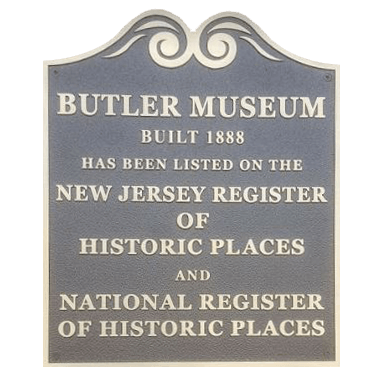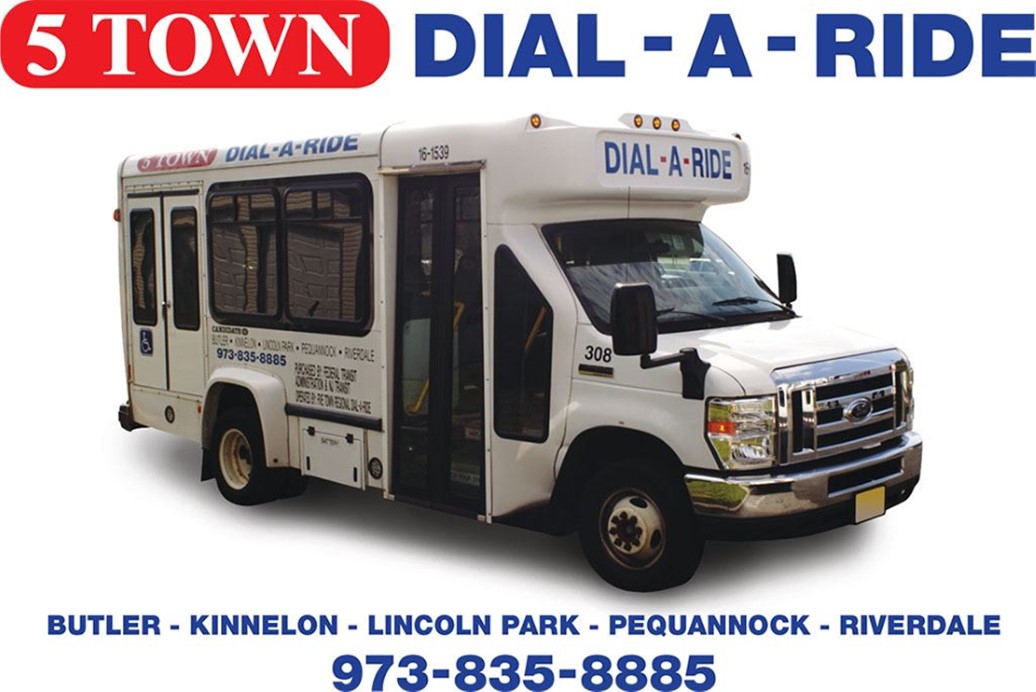Butler Borough Incorporation

A Brief Overview of Butler
Native Americans inhabited what is now northern New Jersey long before the first white settlers came. There is no written history, as these early inhabitants had no written language. The earliest inhabitants were members of the Ramapough Luunape nation. Living in the Ramapo Mountains, they stayed much to themselves. The first white settlers were Dutch, moving west from the Pompton Plains area in search of farmland in the area they named Bloomingdale, in honor of the Dutch village Bloemendaal. The discovery of iron ore in 1734 drew many more settlers to the area to work in the mines, many of whom were English or German. Population growth was stimulated by the Revolutionary War, which heightened the demand for iron. After the war, Hessian mercenaries, sent by King George III to put down the rebellion, were left behind and settled in the area where so many other Germans had made their homes.
The area now known as Butler was originally called "West Bloomingdale" and was sparsely populated. Although the discovery of richer ore deposits in states to the west led to the eventual abandonment of the mines, available water power attracted manufacturers to the area. In 1857, The Pequannock Valley Paper Company moved from Bergen County and, in 1868, the Newbrough Hard Rubber Company built a factory, both based along the Pequannock River. These contributed to the economic growth of the region. In 1871, the New Jersey Midland Railroad laid track through Butler from Paterson, making an important transportation connection for both passengers and freight. The northern terminus for the New York, Susquehanna and Western Railway's passenger service was located at Butler until 1966. The railroad still carries freight through Butler and now reaches beyond Sparta Junction to Warwick, NY.
The growing community was given the name "Butler" in 1881 after Richard Butler, who had taken ownership of the Hard Rubber Company. A post office was established and a larger railroad station was built. This station has been the Borough Museum since about 1977. The Hard Rubber Company eventually merged with other businesses and became the American Hard Rubber Company in 1898. The Pequanoc Rubber Company, a pioneer in the process of reclaiming rubber, built a factory along Main Street. The borough continued to grow as other factories and supporting businesses were established. The population in 1920 was 2,265 people. By 1950, it was 4,063. In 2021, the population expanded to 8116 people.
According to the United States Census Bureau, the borough had a total area of 2.089 square miles (5.410 km), including 2.036 square miles (5.273 km) of land and 0.053 square miles (0.137 km) of water (2.53%),
On March 13, 1901, the Legislature of the State of New Jersey authorized the establishment of the Borough of Butler. The organizational meeting was held on April 1,1901. William Kiel was chosen as its first mayor. Butler is governed under the Borough form of New Jersey municipal government, consisting of a Mayor and a Borough Council of six council members, with all positions elected at-large on a partisan basis as part of the November general election. A Mayor is elected directly by the voters to a four-year term of office. The Council members serve three-year terms on a staggered basis, with two seats coming up for election each year in a three-year cycle. The Borough form of government used by Butler, the most common system used in the state, is a "weak mayor/strong council" government. Council members act as the legislative body with the mayor presiding at meetings and voting only in the event of a tie. The mayor can veto ordinances subject to an override by a two-thirds majority vote of the council. The mayor makes committee and liaison assignments for council members, and most appointments are made by the mayor with the advice and consent of the council.
Butler is located in New Jersey’s 11th Congressional District, currently represented by Mikie Sherrill (D), New Jersey is represented in the United States Senate by Democrats Cory Booker (2026) and Robert Menendez (2024). The Borough is part of New Jersey's 26th state legislative district. Currently, the district is represented in the State Senate by Joseph Pennacchio (R, Montville) and in the General Assembly by Christian Barranco (R, Jefferson) and Jay Webber (R, Morris Plains).
Morris County is governed by a seven-member Board of Commissioners, who are elected at-large to three-year terms on a staggered basis. The Commissioners establish policies for the operation of six super-departments, more than 30 divisions plus authorities, commissions, boards and study committees. Actual day-to-day operation of departments is supervised by the County Administrator,
The Butler Public Schools serve students in pre-kindergarten through twelfth grade. As of the 2022-2023 school year, the district’s three schools had an enrollment of 1125 students. Schools in the district are Aaron Decker School with 374 students in grades pre-K-4 and Richard Butler School with 308 students in grades 5-8. Butler High School enrolls 443 students in grades 9-12, slightly more than 40% of whom are Bloomingdale students, attending Butler High School as part of a sending/receiving relationship with the Bloomingdale School District.
|
Historical population |
|||
|
Census |
Pop. |
%± |
|
|
2,265 |
— |
||
|
2,886 |
27.4% |
||
|
3,392 |
17.5% |
||
|
3,351 |
−1.2% |
||
|
4,050 |
20.9% |
||
|
5,414 |
33.7% |
||
|
7,051 |
30.2% |
||
|
7,616 |
8.0% |
||
|
7,392 |
−2.9% |
||
|
7,420 |
0.4% |
||
|
7,539 |
1.6% |
||
|
2020 |
8,047 |
|
6.7% |
Sources: Butler New Jersey in Story and Pictures; Wikipedia; Public Schools Review, Butler Public Schools, 2023; US Census Bureau.



